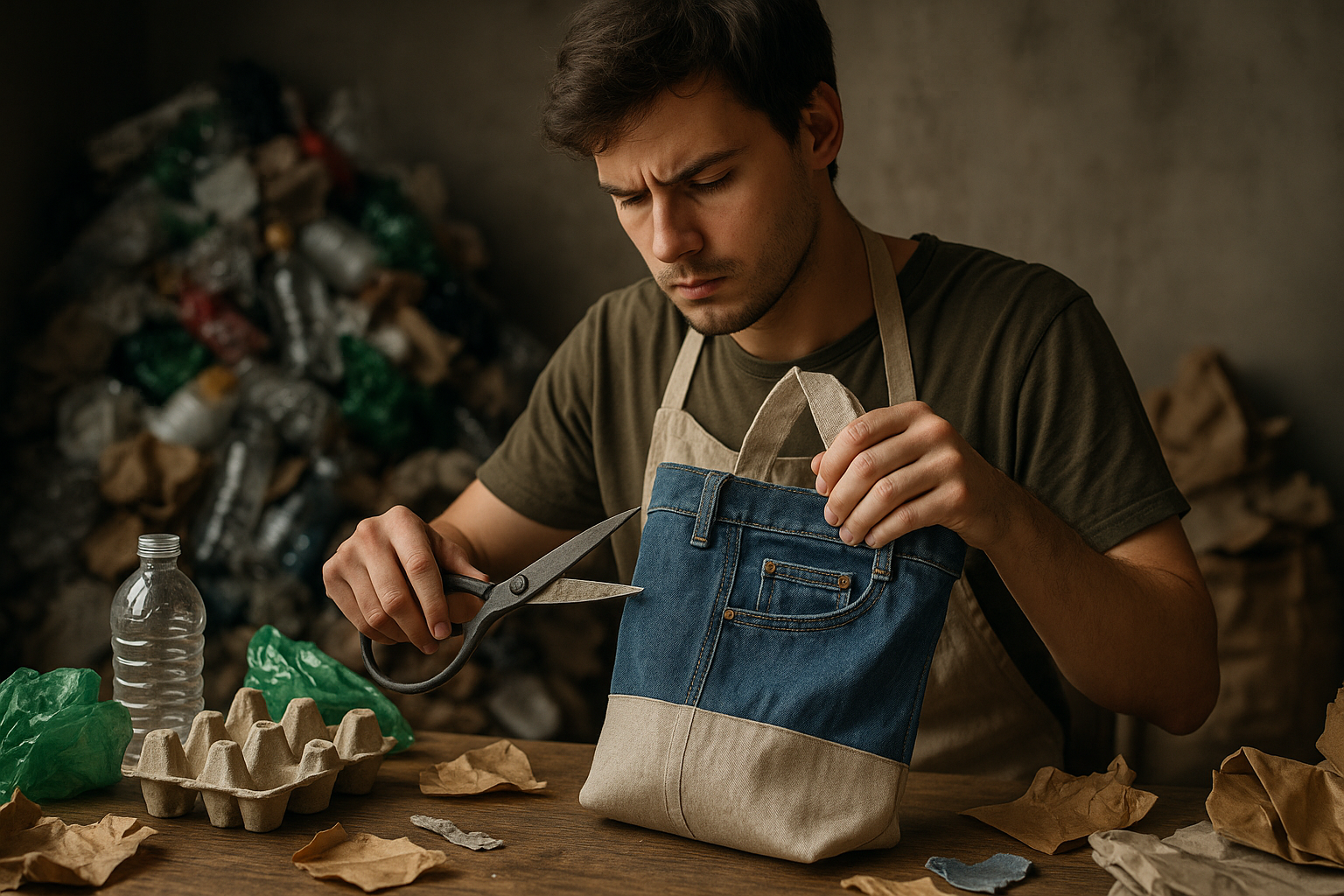Shaping Modern Society: The Rise of Upcycling
The world is changing. As the reality of our environmental impact becomes increasingly evident, new cultural movements are emerging in response. One such trend is upcycling: the art of transforming waste materials into new, valuable products. Read below to discover how this practice is shifting societal paradigms and reshaping our understanding of waste.

A Brief History of Waste
Historically, the concept of waste was foreign to many societies. Indigenous cultures often followed a circular economy model, where resources were used, reused, and returned to the earth in a sustainable cycle. However, the industrial revolution marked a shift towards a linear economy: we extract resources, convert them into products, and dispose of them when they are no longer useful.
This shift has had devastating environmental consequences. But now, a counter-movement is rising: upcycling. This practice takes waste materials and transforms them into something new and valuable, challenging our linear economy and offering a more sustainable alternative.
Upcycling: The New Cultural Shift
In recent years, upcycling has emerged as a significant cultural trend. From fashion designers creating clothes out of discarded materials to artists crafting beautiful sculptures from trash, the practice is gaining traction across different sectors.
The appeal of upcycling lies in its ability to combine creativity, environmentalism, and practicality. It encourages individuals to see waste not as useless garbage, but as a resource ripe for innovation. This shift in perception is not just a trend; it’s a societal transformation.
Implications & Significance of Upcycling
The implications of upcycling are far-reaching. On an environmental level, it can help reduce the amount of waste going to landfill and decrease our reliance on virgin materials, thereby mitigating our environmental impact.
On a social level, upcycling empowers individuals and communities. It promotes creativity, self-sufficiency, and resilience, fostering a sense of agency and connection to our environment. Moreover, it challenges the consumerist mentality that drives our linear economy, encouraging us to value longevity and sustainability over novelty and disposability.
Upcycling: A Future Trend?
As we move forward, it is likely that upcycling will continue to grow in popularity. The practice aligns with broader societal trends towards sustainability and conscious consumption, making it both a product and a driver of these shifts.
However, for upcycling to become mainstream, changes are needed. We need to foster a culture that values waste as a resource, and to create infrastructures that support the practice on a larger scale.
The Power of Individual Action
The rise of upcycling underscores the power of individual action in shaping society. Each upcycled product represents a small act of rebellion against our linear economy, a tangible manifestation of a new, more sustainable ethos.
Yet, this is just the beginning. As we continue to grapple with environmental challenges, the need for innovative solutions like upcycling will only become more pressing. The future, it seems, will be shaped by our capacity to rethink and reimagine our relationship with waste.






